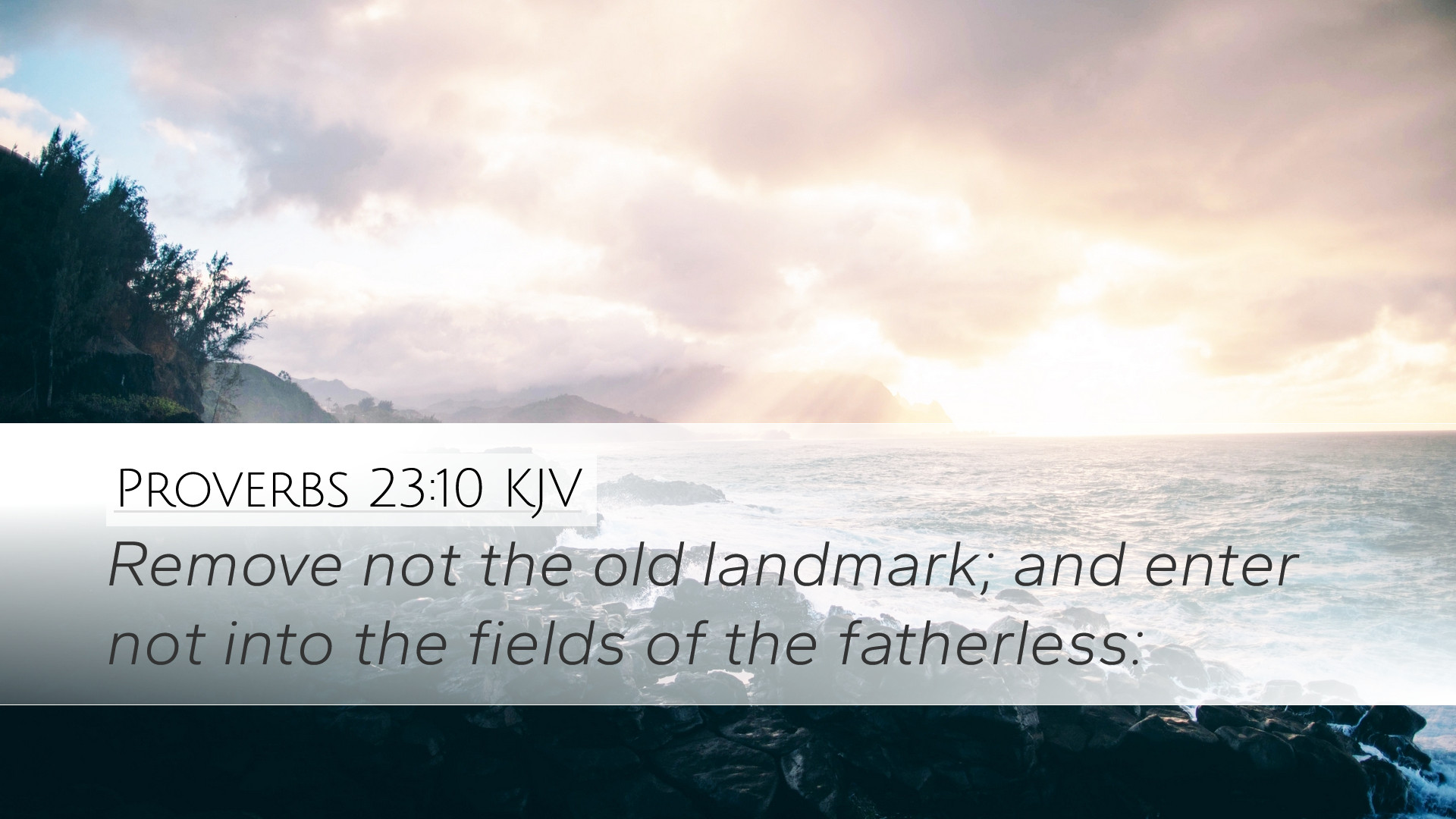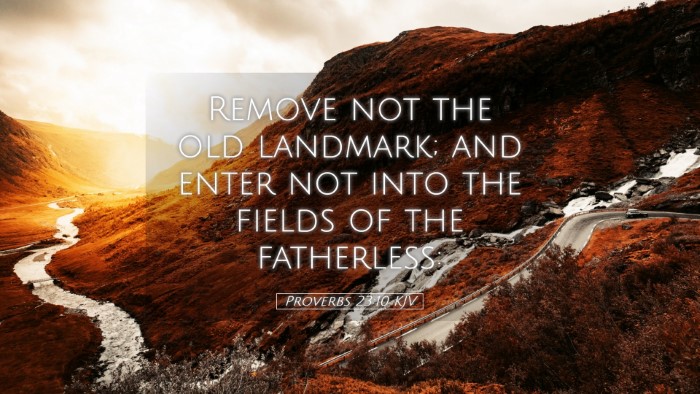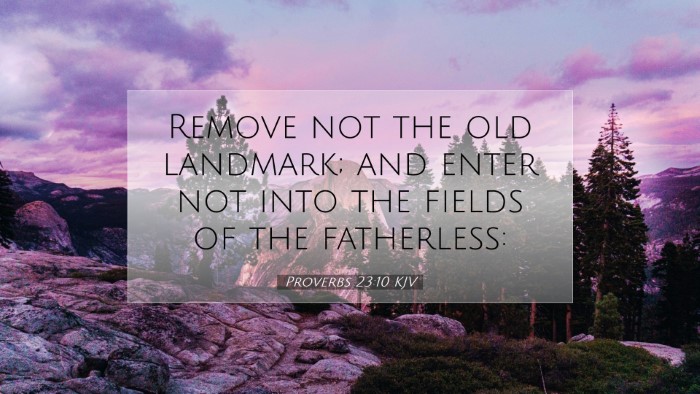Commentary on Proverbs 23:10
Verse: "Remove not the old landmark; and enter not into the fields of the fatherless."
Introduction
The verse from Proverbs 23:10 admonishes against the removal of ancient boundaries and emphasizes the care with which we should handle the possessions of the vulnerable, particularly orphans. This commentary aims to explore the multifaceted layers of meaning embedded within this verse, drawing insights from revered public domain commentators such as Matthew Henry, Albert Barnes, and Adam Clarke.
The Significance of Landmarks
Old Landmarks: In biblical times, landmarks were physical markers that delineated property boundaries. Matthew Henry emphasizes that these landmarks represent not only geographical boundaries but also moral and ethical boundaries instilled by God’s law.
Spiritual Application: Albert Barnes furthers this interpretation by stating that the removal of landmarks symbolizes a broader tendency to disregard tradition and divine commandments. This can lead to spiritual disarray and societal chaos. Thus, preserving these landmarks is crucial for maintaining a sense of order and justice.
The Implications for Society
The exhortation to not remove the old landmark can also be seen as a warning against the encroachment of unrighteousness in societal norms. Adam Clarke notes that changing the ancient landmarks for personal gain reflects a heart that lacks integrity and respect for divine ordinances.
- Preserving Justice: Each landmark serves as a reminder of the moral rules that govern human interactions.
- Legacy and History: Landmarks represent the wisdom of our ancestors and the moral fortitude they instilled in their descendants.
Caring for the Vulnerable
Fatherless: The latter part of the verse directs attention to the fields of the fatherless. This segment highlights the moral responsibility we have towards those who lack the protection and provision of a father. Matthew Henry emphasizes that neglecting the needs of the fatherless reflects a society with eroding moral values.
Call to Advocacy: Albert Barnes reminds us of the biblical mandate to protect the vulnerable—those who are unable to defend themselves. This includes not only orphans but any marginalized group in society.
Theological Reflections
From a theological perspective, Proverbs 23:10 invites us to reflect on God's justice and care for the oppressed. Adam Clarke articulates that God’s character is one of protection and provision for the fatherless, which calls believers to embody these same characteristics in their lives.
Practical Applications
For pastors, theologians, and students of Scripture, this verse serves as a poignant reminder of the importance of upholding biblical values in a rapidly changing world.
- Integrity in Leadership: Leaders in the Church should uphold the biblical landmarks without compromise, ensuring their teachings align with Scripture.
- Community Involvement: Engage in social justice efforts by supporting or advocating for policies that protect orphans and vulnerable populations.
- Spiritual Heritage: Recognize and treasure the biblical foundations laid by previous generations while conveying their importance to the next generation.
Conclusion
Proverbs 23:10 serves as a vital touchstone for understanding the moral imperatives that govern our lives as believers. By respecting the old landmarks and actively caring for the fatherless, we embody the heart of God, reflecting His justice and compassion in a world that desperately needs these virtues.


